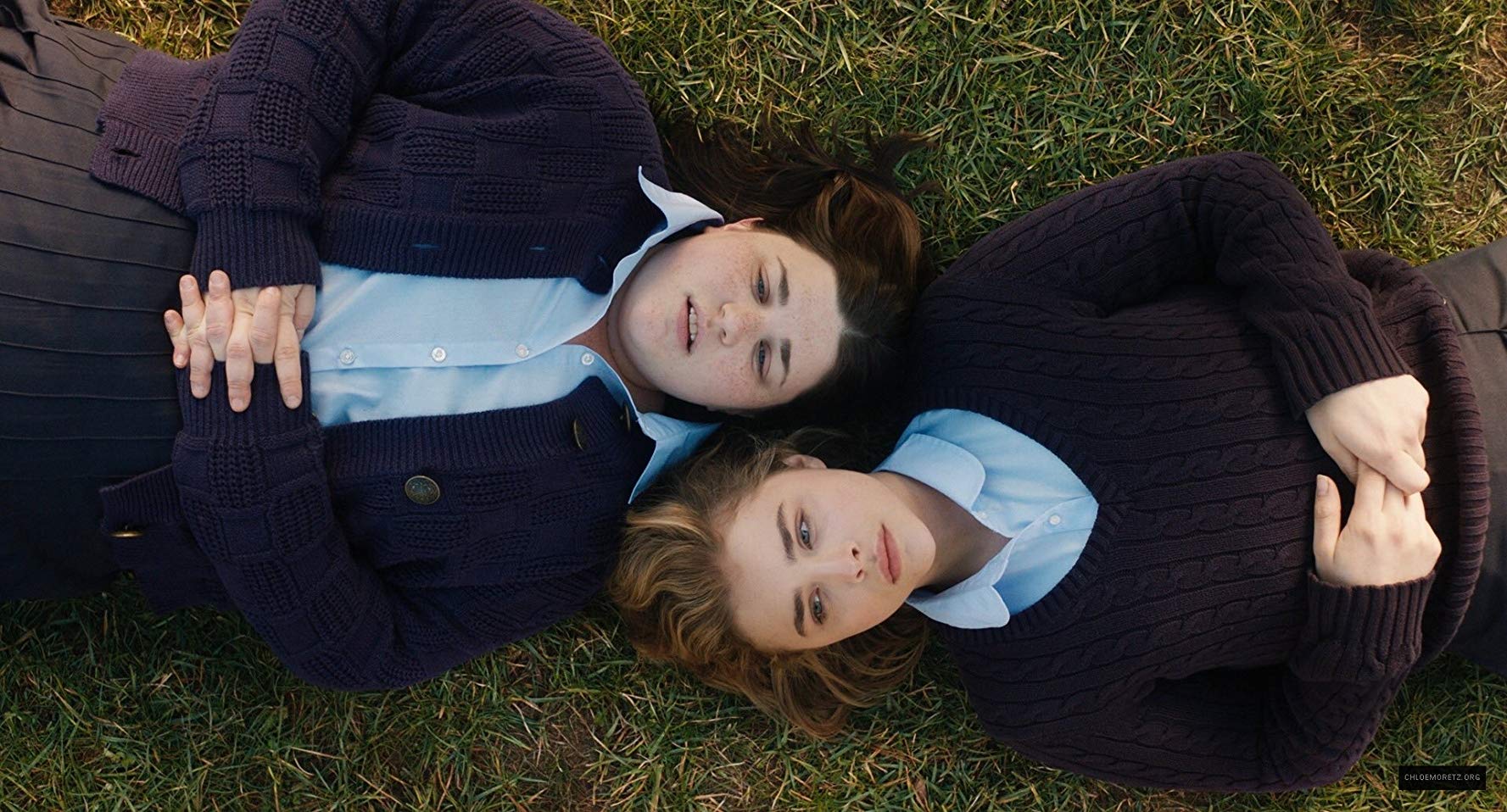‘Miseducation of Cameron Post’ Explores the Quiet Torture of Gay Conversion Therapy
The Miseducation of Cameron Post is an education in the ways toxic ideologies can be weaponized by those who think they’re doing good. The Sundance Grand Jury Prize Winner is based on Emily M. Danforth’s book of the same name, a coming of age tale of a teen sent to a gay conversion therapy camp called God’s Promise. The book was based on the true story of Zach Stark, a 16-year-old from Tennessee who posted on MySpace, in 2005, about coming out to his parents, only to have them force him into conversion therapy. 13 years later these camps are still legal in most of the country.
The film is sublimely set in Montana in the 90s, decked with oversized denim jackets and cassette tapes. Chloë Grace Moretz plays the young Cameron Post, who is sent to conversion therapy after being found hooking up with her best friend in the backseat of a car.
The film is important, even in 2018, because films depicting lesbian relationships still lag behind ones showing gay male relationships. As of 2017, GLAAD noted that of the LGBTQ inclusive films released that year, 64 percent featured gay male characters while 36 percent featured lesbian characters. Conversion therapy is also still widespread—it is legal in 41 states in the United States, despite being decried as deeply unethical and completely pseudoscientific. A 2018 report by The Williams Institute at UCLA estimated that 698,000 LGBTQ adults have received conversion therapy, and that 57,000 youths (ages 13-17) will receive it by the time they reach age 18.
Cameron Post is particularly impactful because God’s Promise is a stand in for the type of camp which might be considered innocuous, or even idyllic, to the kind of person who would send someone there. It doesn’t depict physically abusive aversion practices like “rubber band snapping,” inducing nausea, or electric shock. Camp counselors Dr. Lydia March and Reverend Rick aren’t classic villains so much as toxic idiots, who push self-hatred upon attendees, known as “disciples,” in the name of cleansing their “sins.” The counselors instruct disciples that “SSA”—shorthand for “same sex attraction”—is a symptom of a larger problem that is inherent to their central identities. Disciples are told to fill out “iceberg” charts, whereby the tip of the iceberg is same sex attraction and the underlying causes are things like “gender confusion as a result of interest in sports.”
So begins the profound emotional abuse of “treatment.” Lydia administers “therapy” and Bible study, of course, to encourage disciples not to identify as homosexual. She likens homosexuality to cannibalism, and encourages fellow disciples to rat out any “bad” behavior they see, which include things like listening to non-Christian music or laughing out of turn. Non-white culture is also an irregularity that must be ironed out, as in the case of Adam Red Eagle—portrayed by Forrest Goodluck—a Lokotan teen who identifies as a two-spirit.

The film’s darkest moments explore what it means to be taught to reject even the most fundamental elements of your personality while simultaneously distrusting everyone around you. Christianity, in this context, warps into a psychological crutch. When you have no one to trust—not your caregivers who forced you to go to the conversion camp, not your campmates who are hell-bent on “helping you recover” by snitching on you, and certainly not your counselors—God is meant to fill the vacuum left behind. This means religiosity becomes a shorthand for how broken disciples are, and how little they can be trusted. Cameron decides who she can become friends with by who breaks those rules, leading her to trust Adam Red Eagle, and Jane Fonda (played with brilliant chillness by Sasha Lane) after she sees them sneakily smoking a blunt.
The lighting and framing of the film reinforces its greatest theme—constant containment, both physically and emotionally, and the need to remain quiet, resisting the “sin” of homosexuality. The fulfillment of one’s desires only occurs within the most confined claustrophobic spaces. The movie’s few moments of physical intimacy happen in window nooks, parked cars, dark cabins—always with the fear of being discovered. These expressions of lust and desire are in a perpetual state of confinement.
The overall effect of this visual theme provokes a deeper understanding of the narrative material. Not only is Cameron literally confined, she and her fellow disciples are taught to internalize a constant state of emotional bottling. This kind of painful un-spokenness is best summed up best by disciple Helen telling Cameron, “your silence feels aggressive and judgmental… it speaks volumes,” during an exercise where Cameron can’t think of anything to say when they’re meant to share “the first time your SSA got in the way of your goals.” The movie’s constant quietude, in the face of such noxious attacks feels aggressive. It really does speak volumes.

This emotional quietness also means that, from a narrative standpoint, the ending of Cameron Post doesn’t feel conclusive. Though there is a narrative climax, the film coasts to its finish more than wrapping up any details. You get the sense that none of the characters you’re introduced to have evolved or grown—they’re all flat or stagnant—save for having endured an immense amount of trauma. In this stagnation we get the film’s most powerful message: trauma is not a means for growth. Conversion therapy is stagnant, ineffectual, and tragic. And so, too, are its perpetrators and its victims.
Sign up for our newsletter to get the best of VICE delivered to your inbox daily.
Follow Nicole Clark on Twitter.
This article originally appeared on VICE US.